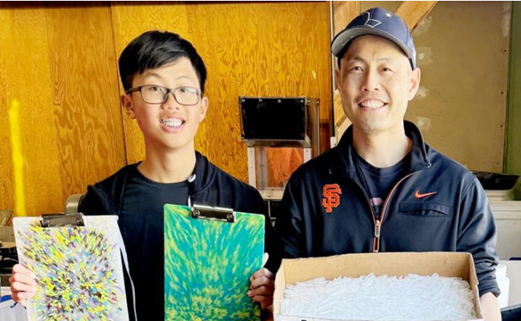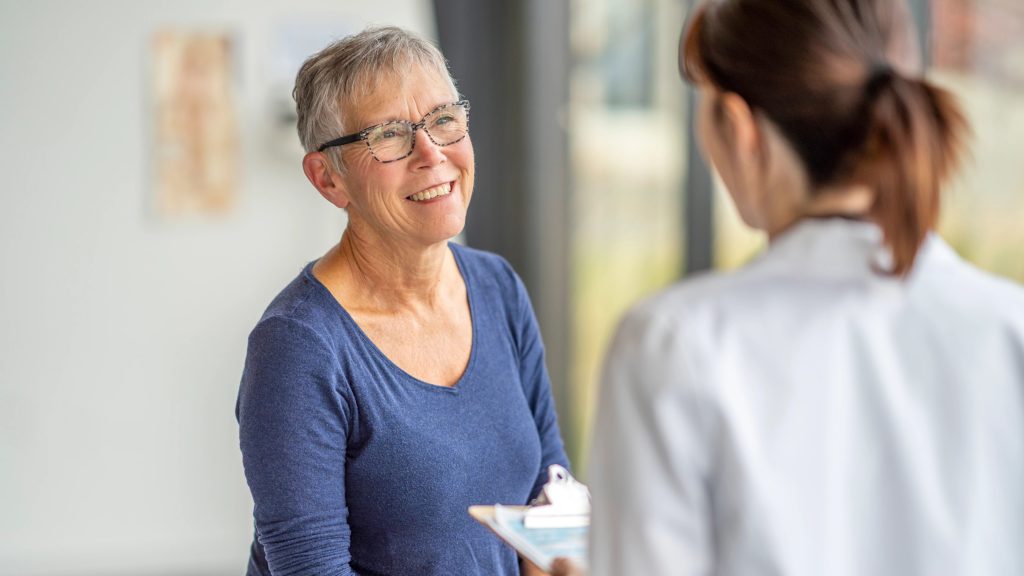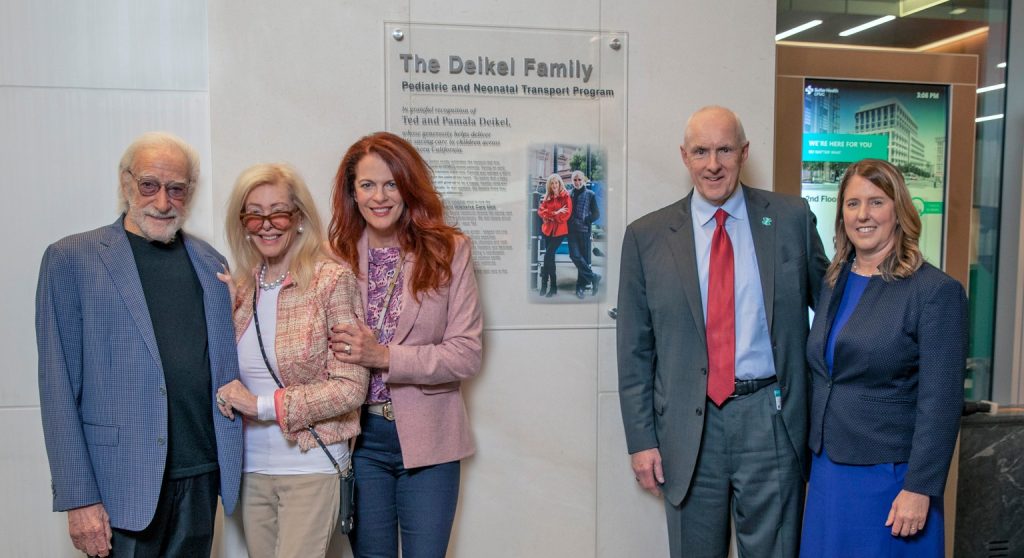Single use plastic is widespread in health care because it meets the industry’s need for sterile material. But more medical providers are looking for ways to reduce and recycle some of their plastic waste when it’s safe to do so. A doctor at Sutter’s Palo Alto Medical Foundation – and his son – have an innovative solution that keeps many needle caps out of the landfill or incinerator.
“All needles are protected by a small rigid plastic sheath to reduce the risk of needle stick injury,” says Dr. Ken Lin, internal medicine and pediatric physician in San Carlos, Calif., about 25 miles southeast of San Francisco. “This plastic needle cap is uncontaminated, because it is only handled with gloves and never touches a person or any chemicals. And it’s easy to separate, making it perfect for recycling.”
Needle caps are a source of almost pure polypropylene, the second-most widely produced plastic in the world. They’re also clean. “Plastic food containers must be washed, non-greasy, and de-labeled before they can be recycled, but these caps are pristine and nearly ubiquitous,” says Dr. Lin.
While Dr. Lin saw potential in plastic caps, it took his 14-year-old son’s connections to catalyze the idea.
“I have a friend through Boy Scouts who made plastic clipboards as part of his Eagle Scout project and it got me thinking,” says Brandon Lin. “My friend and his parents founded Peninsula Precious Plastics, part of a non-profit community of open-source makers with access to a warehouse and machines that are necessary for small-scale plastic projects. Thanks to them, I knew we had just what we would need to start recycling needle caps.”
Shred, Melt, Press and Bake
In May 2023, the father-son team started collecting caps from Dr. Lin’s department inside the PAMF San Carlos Center. What started as a pilot project quickly grew and soon caps were coming from PAMF care centers in the Bay Area including Burlingame, Daly City, Palo Alto, Fremont and as far away as Aptos.
Each time Dr. Lin and Brandon have approximately 20 to 30 pounds of caps, they visit Precious Plastics to shred and melt the caps before pressing them into molds to bake. The result? A clipboard that goes back to the clinical teams who collected the caps. “The medical staff absolutely love the clipboards and they help tell the story of recycling as they use them thru the day, striking up conversations with patients about their origin,” says Brandon.
To-date the pair estimate that they’ve processed over 160,000 pieces of plastic, the equivalent of 400 pounds of material, and created 88 clipboards. A bulk of the already shredded plastic is now waiting to be baked into larger sheets, and the pair is hoping to create small furniture from those sheets. They’ve also named their effort the “ReCap Project” and begun documenting their impact through a website and Instagram account.
Small Effort Part of Larger Picture
Existing and robust zero waste programs at seven PAMF locations have undoubtedly made diligent cap collection easier for employees. These programs prioritize the sorting of waste at its source and involve everyone from custodial to clinical staff.
“The goal of zero waste is to minimize waste generation by rethinking consumption patterns, maximizing recycling and composting, and redesigning products and systems to eliminate waste, thereby reducing the amount that is sent to landfills or incinerators,” says Pankaj Hande, manager of the PAMF sustainability and standards program. “It involves reducing, reusing, recycling, and composting materials to divert them from disposal, thereby conserving resources, reducing pollution, and promoting sustainability.” In 2018, before the zero waste program stated, PAMF sent approximately 270 tons of waste to the landfill each year. Compare that to 169 tons in 2023, a reduction of more than 35%.
PAMF’s zero waste strategies are just one of several efforts to address environmental challenges and promote more sustainable healthcare. The organization has also implemented energy efficiency initiatives, starting in 2020, that have conserved 1,445,000 kilowatt hours of energy – the equivalent of keeping 240 gasoline-powered cars off the road for one year. Energy adjustments have included changes to the operational schedule of HVAC systems, LED lighting upgrades at Fremont, Sunnyvale, and San Carlos centers, and better management of demand for electricity.
Engaged employees have been key to PAMF’s efforts. More than 100 physicians and staff – known as Green Champions – volunteer their time to regularly share sustainability resources with local teams and coordinate eco-friendly measures in the workplace. The organization also has a formal Sustainability Committee, co-chaired by Dr. Amy Adams, PAMF dermatologist and Arley Wolf, director of facilities for Sutter Bay Medical Foundation.
In collaboration with Sutter-wide sustainability efforts led by Iris Andre, the committee will soon focus on the installation of solar panels in the parking lots of 10 care centers, creating shade for cars while capturing energy from the sun!





